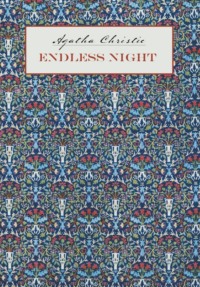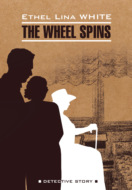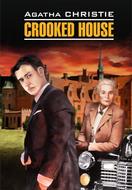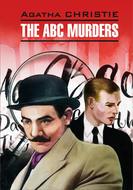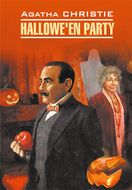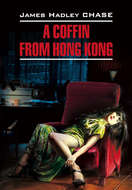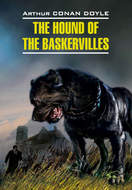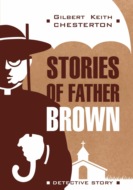Buch lesen: "Endless Night / Бесконечная ночь. Книга для чтения на английском языке"
Agatha Christie
ENDLESS NIGHT
В оформлении обложки использован фрагмент орнамента Уильяма Морриса
Endless Night
© 1967 Agatha Christie Limited.
All rights reserved.
AGATHA CHRISTIE ©, аnd the Agatha Christie Signature аге registered trade marks of Agatha Christie Limited in the UK and elsewhere. All rights reserved.
© КАРО, 2024
* * *
To Nora Prichard
from whom I first heard
the legend of Gipsy’s Acre
Every Night and every Morn
Some to Misery are born.
Every Morn and every Night
Some are born to Sweet Delight,
Some are born to Sweet Delight,
Some are born to Endless Night,
William BlakeAuguries of Innocence
Book I
Chapter 1
In my end is my beginning… That's a quotation I’ve often heard people say. It sounds all right – but what does it really mean?
Is there ever any particular spot where one can put one’s finger and say: 'It all began that day, at such a time and such a place, with such an incident?’
Did my story begin, perhaps, when I noticed the Sale Bill hanging on the wall of the George and Dragon, announcing Sale by Auction of that valuable property 'The Towers’, and giving particulars of the acreage, the miles and furlongs1, and the highly idealized portrait of ‘The Towers’ as it might have been perhaps in its prime, anything from eighty to a hundred years ago?
I was doing nothing particular, just strolling along the main street of Kingston Bishop, a place of no importance whatever, killing time. I noticed the Sale Bill. Why? Fate up to its dirty work? Or dealing out its golden handshake of good fortune?2 You can look at it either way.
Or you could say, perhaps, that it all had its beginnings when I met Santonix, during the talks I had with him; I can close my eyes and see: his flushed cheeks, the overbrilliant eyes, and the movement of the strong yet delicate hand that sketched and drew plans and elevations of houses. One house in particular, a beautiful house, a house that would be wonderful to own!
My longing for a house, a fine and beautiful house, such a house as I could never hope to have, flowered into life then. It was a happy fantasy shared between us, the house that Santonix would build for me – if he lasted long enough…
A house that in my dreams I would live in with the girl that I loved, a house in which just like a child’s silly fairy story we should live together 'happy ever afterwards’. All pure fantasy, all nonsense, but it started that tide of longing in me. Longing for something I was never likely to have.
Or if this is a love story – and it is a love story, I swear – then why not begin where I first caught sight of Ellie standing in the dark fir trees of Gipsy's Acre?
Gipsy’s Acre. Yes, perhaps I'd better begin there, at the moment when I turned away from the Sale board with a little shiver because a black cloud had come over the sun, and asked a question carelessly enough of one of the locals, who was clipping a hedge in a desultory fashion nearby3.
‘What’s this house, The Towers, like?’
I can still see the queer face of the old man, as he looked at me sideways and said:
‘That’s not what us calls it here. What sort of a name is that?’ He snorted disapproval. ‘It’s many a year now since folks lived in it and called it The Towers.’ He snorted again.
I asked him then what he called it, and again his eyes shifted away from me in his old wrinkled face in that queer way country folk have of not speaking to you direct, looking over your shoulder or round the corner, as it were, as though they saw something you didn’t; and he said:
‘It's called hereabouts Gipsy’s Acre.’
‘Why is it called that?’ I asked.
‘Some sort of a tale. I dunno rightly. One says one thing, one says another.’ And then he went on, ‘Anyway, it’s where the accidents take place.’
‘Car accidents?’
All kinds of accidents. Car accidents mainly nowadays. It’s a nasty corner there, you see.’
‘Well,’ I said, ‘if it’s a nasty curve, I can well see there might be accidents.’
‘Rural Council put up a Danger sign, but it don’t do no good, that don’t. There are accidents just the same.’ ‘Why Gipsy?’ I asked him.
Again his eyes slipped past me and his answer was vague. ‘Some tale or other. It was gipsies’ land once, they say, and they were turned off, and they put a curse on it.’
I laughed.
‘Aye,’ he said, ‘you can laugh but there’s places as is cursed. You smart-Alecks in town4 don't know about them. But there's places as is cursed all right, and there’s a curse on this place. People got killed here in the quarry when they got the stone out to build. Old Geordie he fell over the edge there one night and broke his neck.'
‘Drunk?’ I suggested.
‘He may have been. He liked his drop, he did. But there’s many drunks as fall – nasty falls – but it don’t do them no lasting harm. But Geordie, he got his neck broke. In there,’ he pointed up behind him to the pine-covered hill, ‘in Gipsy’s Acre.’
Yes, I suppose that's how it began. Not that I paid much attention to it at the time. I just happened to remember it. That’s all. I think – that is, when I think properly – that I built it up a bit in my mind. I don’t know if it was before or later that I asked if there were still gipsies about there. He said there weren’t many anywhere nowadays. The police were always moving them on, he said. I asked:
‘Why doesn’t anybody like gipsies?’
‘They’re a thieving lot,’ he said, disapprovingly. Then he peered more closely at me. ‘Happen you’ve got gipsy blood yourself?’ he suggested, looking hard at me.
I said not that I knew of. It's true, I do look a bit like a gipsy. Perhaps that’s what fascinated me about the name of Gipsy's Acre. I thought to myself as I was standing there, smiling back at him, amused by our conversation, that perhaps I had a bit of gipsy blood.
Gipsy’s Acre. I went up the winding road that led out of the village and wound up through the dark trees and came at last to the top of the hill so that I could see out to sea and the ships. It was a marvellous view and I thought, just as one does think things: I wonder how it would be if Gipsy’s Acre was my acre… Just like that… It was only a ridiculous thought. When I passed my hedge clipper again, he said:
‘If you want gipsies, there’s old Mrs Lee of course. The Major, he gives her a cottage to live in.’
‘Who’s the Major?’ I asked.
He said, in a shocked voice, ‘Major Phillpot, of course.’ He seemed quite upset that I should ask! I gathered that Major Phillpot was God locally. Mrs Lee was some kind of dependant of his, I suppose, whom he provided for. The Phillpots seemed to have lived there all their lives and more or less to have run the place.
As I wished my old boy good day and turned away he said:
‘She’s got the last cottage at the end of the street. You’ll see her outside, maybe. Doesn’t like the inside of houses. Them as has got gipsy blood don’t.’
So there I was, wandering down the road, whistling and thinking about Gipsy’s Acre. I’d almost forgotten what I’d been told when I saw a tall blackhaired old woman staring at me over a garden hedge. I knew at once it must be Mrs Lee. I stopped and spoke to her.
‘I hear you can tell me about Gipsy's Acre up there,' I said.
She stared at me through a tangled fringe of black hair5 and she said:
‘Don’t have nought6 to do with it, young man. You listen to me. Forget about it. You’re a good-looking lad. Nothing good comes out of Gipsy’s Acre and never will.’
‘I see it’s up for sale,’ I said.
‘Aye, that’s so, and more fool he who buys it.’
‘Who’s likely to buy it?’
'There's a builder after it. More than one. It'll go cheap. You’ll see.’
'Why should it go cheap?' I asked curiously. 'It's a fine site.’
She wouldn’t answer that.
'Supposing a builder buys it cheap, what will he do with it?’
She chuckled to herself. It was malicious, unpleasant laughter.
‘Pull down the old ruined house and build, of course. Twenty – thirty houses, maybe – and all with a curse on them.’ I ignored the last part of the sentence. I said, speaking before I could stop myself: ‘That would be a shame. А great shame.’
‘Ah, you needn't worry. They'll get no joy of it, not those who buys and not those who lays the bricks and mortar. There’ll be a foot that slips on the ladder, and there’ll be the lorry that crashes with a load, and the slate that falls from the roof of a house and finds its mark. And the trees too. Crashing, maybe, in a sudden gale. Ah, you'll see! There's none that'll get any good out of Gipsy’s Acre. They’d do best to leave it alone. You’ll see. You’ll see.’ She nodded vigorously and then she repeated softly to herself, 'There's no luck for them as meddles with Gipsy's Acre. There never has been.’
I laughed. She spoke sharply.
‘Don’t laugh, young man. It comes to me as maybe one of these days you’ll laugh on the wrong side of your mouth. There’s never been no luck there, not in the house nor yet in the land.’
‘What happened in the house?’ I asked. ‘Why has it been empty so long? Why was it left to fall down?’ 'The last people that lived there died, all of them.’ ‘How did they die?’ I asked out of curiosity.
‘Best not to speak of it again. But no one cared to come and live in it afterwards. It was left to moulder and decay. It's forgot by now and best that it should be.'
‘But you could tell me the story,' I said, wheedlingly. ‘You know all about it.’
‘I don’t gossip about Gipsy’s Acre.’ Then she let her voice drop to a kind of phoney beggar’s whine. ‘I’ll tell your fortune now, my pretty lad, if you like. Cross my palm with silver and I’ll tell your fortune. You're one of those that’ll go far one of these days.’
'I don't believe nonsense about fortune-telling,’ I said, ‘and I haven’t any silver. Not to spare, anyway.’ She came nearer to me and went on in a wheedling voice. ‘Sixpence now. Sixpence now. I’ll do it for sixpence. What’s that? Nothing at all. I’ll do it for sixpence because you’re a handsome lad with a ready tongue and a way with you. It could be that you’ll go far.’ I fished a sixpence out of my pocket, not because I believed in any of her foolish superstitions but because for some reason I liked the old fraud even if I did see through her. She grabbed the coin from me, and said:
‘Give me your hand then. Both hands.’
She took my hands in her withered claw and stared down at the open palms. She was silent for a minute or two, staring. Then she dropped my hands abruptly, almost pushing them away from her. She retreated a step and spoke harshly.
'If you know what's good for you, you'll get out of Gipsy's Acre here and now and you won't come back! That's the best advice I can give you. Don’t come back.’ ‘Why not? Why shouldn’t I come back?’
‘Because if you do you’ll come back to sorrow and loss and danger maybe. There’s trouble, black trouble waiting for you. Forget you ever saw this place. I’m warning you.’
‘Well of all the —’
But she had turned away and was retreating to the cottage. She went in and slammed the door. I’m not superstitious. I believe in luck, of course, who doesn’t? But not a lot of superstitious nonsense about ruined houses with curses on them. And yet I had an uneasy feeling that the sinister old creature had seen something in my hands. I looked down at my two palms spread out in front of me. What could anyone see in the palms of anyone's hands? Fortune-telling was arrant nonsense – just a trick to get money out of you – money out of your silly credulity. I looked up at the sky. The sun had gone in, the day seemed different now. А sort of shadow, a kind of menace. Just an approaching storm, I thought. The wind was beginning to blow, the backs of the leaves were showing on the trees. I whistled to keep my spirits up and walked along the road through the village.
I looked again at the pasted-up bill advertising the auction of The Towers. I even made a note of the date. I had never attended a property sale in my life but I thought to myself that I'd come and attend this one. It would be interesting to see who bought The Towers. That is to say interesting to see who became the owner of Gipsy’s Acre. Yes, I think that's really where it all began… А fantastic notion occurred to me. I’d come and pretend to myself that I was the man who was going to bid for Gipsy’s Acre! I’d bid against the local builders! They’d drop out, disappointed in their hopes of buying it cheap. I'd buy it and I’d go to Rudolf Santonix and say, ‘Build me a house. I’ve bought the site for you.’ And I’d find a girl, a wonderful girl, and we’d live in it together happy ever after.
I often had dreams of that kind. Naturally they never came to anything but they were fun. That’s what I thought then. Fun! Fun, my God! If I’d only known!
Chapter 2
It was pure chance that had brought me to the neighbourhood of Gipsy’s Acre that day. I was driving a hired car, taking some people down from London to attend a sale, a sale not of a house but its contents. It was a big house just at the outskirts of the town, a particularly ugly one. I drove an elderly couple there who were interested, from what I could overhear of their conversation, in a collection of papier mache, whatever papier mache was. The only time I ever heard it mentioned before was by my mother in connection with washing-up bowls. She'd said that a papier mache washing-up bowl was far better than a plastic one any day! It seemed an odd thing for rich people to want to come down and buy a collection of the stuff.
However I stored the fact away in my mind and I thought I would look in a dictionary or read up somewhere what papier mache really was. Something that people thought worthwhile to hire a car for, and go down to a country sale and bid for. I liked to know about things. I was twenty- two years of age at that time and I had picked up a fair amount of knowledge one way and another. I knew a good deal about cars, was a fair mechanic and a careful driver Once I'd worked with horses in Ireland. I nearly got entangled with a dope gang but I got wise and quit in time. А job as a chauffeur to a classy car hire firm isn’t bad at all. Good money to be made with tips. And not usually too strenuous. But the work itself was boring.
Once I’d gone fruit picking in summer time. That didn't pay much, but I enjoyed myself. I'd tried a lot of things. I'd been a waiter in a third-class hotel, life guard on a summer beach, I’d sold encyclopaedias and vacuum cleaners and a few other things. I'd once done horticultural work in a botanical garden and had learnt a little about flowers.
I never stuck to anything. Why should I? I’d found nearly everything I did interesting. Some things were harder work than others but I didn’t really mind that. I’m not really lazy. I suppose what I really am is restless. I want to go everywhere, see everything, do everything. I want to find something. Yes, that’s it. I want to find something.
From the time I left school I wanted to find something, but I didn't yet know what that something was going to be. It was just something I was looking for in a vague, unsatisfied sort of way. It was somewhere. Sooner or later I'd know all about it. It might perhaps be a girl… I like girls, but no girl I'd met so far had been important… You liked them all right but then you went to the next one quite gladly. They were like the jobs I took. All right for a bit and then you got fed up with them and you wanted to move on to the next one. I'd gone from one thing to another ever since I'd left school.
A lot of people disapproved of my way of life. I suppose they were what you might call my well-wishers7. That was because they didn't understand the first thing about me. They wanted me to go steady with a nice girl, save money, get married to her and then settle down to a nice steady job. Day after day, year after year, world without end, amen. Not for yours truly! There must be something better than that. Not just all this tame security, the good old welfare state limping along in its half-baked way! Surely, I thought, in a world where man has been able to put satellites in the sky and where men talk big about visiting the stars, there must be something that rouses you, that makes your heart beat, that's worthwhile searching all over the world to find! One day, I remember, I was walking down Bond Street. It was during my waiter period and I was due on duty. I’d been strolling looking at some shoes in a shop window. Very natty they were. Like they say in the advertisements in newspapers: What smart men are wearing today’ and there’s usually a picture of the smart man in question. My word, he usually looks a twerp! Used to make me laugh, advertisements like that did.
I passed on from the shoes to the next window. It was a picture shop. Just three pictures in the window artily arranged with a drape of limp velvet in some neutral colour arranged over a corner of a gilt frame. Cissy, if you know what I mean. I’m not much of a one for Art. I dropped in to the National Gallery once out of curiosity. Fair gave me the pip, it did. Great big shiny coloured pictures of battles in rocky glens, or emaciated saints getting themselves stuck with arrows. Portraits of simpering great ladies sitting smirking in silks and velvets and lace. I decided then and there that Art wasn't for me. But the picture I was looking at now was somehow different. There were three pictures in the window. One a landscape, nice bit of country for what I call everyday. One of a woman drawn in such a funny way, so much out of proportion, that you could hardly see she was a woman. I suppose that's what you call art nouveau8. I don’t know what it was about. The third picture was my picture. There wasn’t really much to it, if you know what I mean. It was – how can I describe it? It was kind of simple. А lot of space in it and a few great widening circles all round each other if you can put it that way. All in different colours, odd colours that you wouldn't expect. And here and there, there were sketchy bits of colour that didn’t seem to mean anything. Only somehow they did mean something! I’m no good at description. All I can say is that one wanted terribly to go on looking at it.
I just stood there, feeling queer as though something very unusual had happened to me. Those fancy shoes now, I’d have liked them to wear. I mean I take quite a bit of trouble with my clothes. I like to dress well so as to make an impression, but I never seriously thought in my life of buying a pair of shoes in Bond Street. I know the kind of fancy prices they ask there. Fifteen pounds a pair those shoes might be. Hand-made or something, they call it, making it more worthwhile for some reason. Sheer waste of money9 that would be. А classy line in shoes, yes, but you can pay too much for class. I’ve got my head screwed on the right way.
But this picture, what would that cost? I wondered.
Suppose I were to buy that picture? You’re crazy, I said to myself. You don’t go for pictures, not in a general way. That was true enough. But I wanted this picture… I’d like it to be mine. I’d like to be able to hang it and sit and look at it as long as I liked and know that I owned it! Me! Buying pictures. It seemed a crazy idea. I took a look at the picture again. Me wanting that picture didn’t make sense, and anyway, I probably couldn’t afford it. Actually I was in funds at just that moment. А lucky tip on a horse. This picture would probably cost a packet. Twenty pounds? Twenty-five? Anyway, there would be no harm in asking. They couldn’t eat me, could they? I went in, feeling rather aggressive and on the defensive.
The inside of the place was all very hushed and grand. There was a sort of muted atmosphere with neutral-colour walls and a velvet settee on which you could sit and look at the pictures. А man who looked a little like the model for the perfectly dressed man in advertisements came and attended to me, speaking in a rather hushed voice10 to match the scenery. Funnily, he didn't look superior as they usually do in high-grade Bond Street shops. He listened to what I said and then he took the picture out of the window and displayed it for me against a wall, holding it there for me to look at as long as I wanted. It came to me then – in the way you sometimes know just exactly how things are, that the same rules didn't apply over pictures as they do about other things. Somebody might come into a place like this dressed in shabby old clothes and a frayed shirt and turn out to be a millionaire who wanted to add to his collection. Or he could come in looking cheap and flashy, rather like me perhaps, but somehow or other he’d got such a yen for a picture that he managed to get the money together by some kind of sharp practice.
'A very fine example of the artist’s work,’ said the man who was holding the picture.
‘How much?’ I said briskly.
The answer took my breath away.
‘Twenty-five thousand,’ he said in his gentle voice.
I’m quite good at keeping a poker face. I didn’t show anything. At least I don't think I did. He added some name that sounded foreign. The artist's name, I suppose, and that it had just come on the market from a house in the country, where the people who lived there had had no idea what it was. I kept my end up and sighed.
‘It's a lot of money but it’s worth it, I suppose,' I said.
Twenty-five thousand pounds. What a laugh!
‘Yes,’ he said and sighed. ‘Yes indeed.’ He lowered the picture very gently and carried it back to the window. He looked at me and smiled. ‘You have good taste,’ he said.
I felt that in some way he and I understood each other. I thanked him and went out into Bond Street.
